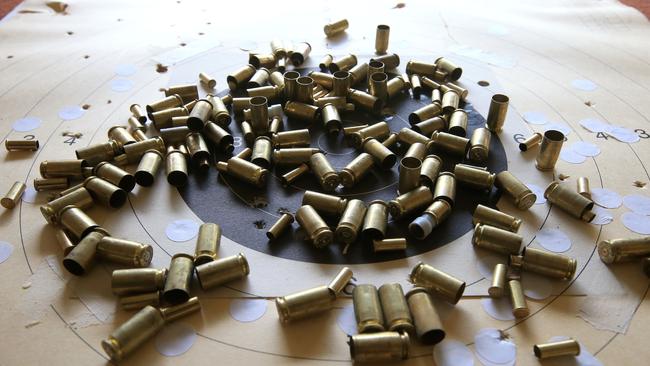Human Rights Watch Australia urges federal government to end the export of military goods to Saudi Arabia and UAE
The federal government has granted dozens of export permits for companies to sell weapons to countries with poor human rights records – and there are calls for it to stop.
SA News
Don't miss out on the headlines from SA News. Followed categories will be added to My News.
Australia has granted dozens of export permits for companies to sell weapons, ammunition and other military goods to countries with poor human rights records in just the past two years.
Last year alone, 36 defence export permits were issued for sales to the United Arab Emirates, while 25 licences have been granted this year.
Defence issued 17 permits for sales to Saudi Arabia last year and 21 in 2022.
The figures have sparked concerns Australia “risks complicity” in war crimes and other human rights atrocities.
Human Rights Watch Australia researcher Sophie McNeill urged the federal government to end the export of military goods to Saudi Arabia and UAE “as long as there is an overriding risk that weapons will be used to commit or facilitate violations” of international human rights laws.

Ms McNeill condemned “alarming levels of civilian casualties” in the long running Yemeni conflict that worsened after a Saudi-led coalition launched military action against Houthi forces in March 2015.
“All states, including Australia, risk complicity in war crimes if they supply the Saudi-led coalition with arms,” Ms McNeill said.
“It is especially incumbent upon the government of Australia to ensure they are not further fuelling this violence through defence exports to countries that have committed abuses as part of this conflict.”
A Defence spokeswoman said all exports to Saudi Arabia and UAE were assessed against stringent Australian export controls.
“If overriding risks to Australia’s security, defence, or international relations had been identified, the permit would have been refused,” the spokeswoman said.
The data, provided to Greens senator David Shoebridge through the Senate Estimates process, does not include details on the type of material exported to foreign countries or the companies involved.

“We urge increased transparency over exactly what military goods are being exported, because we don’t know currently what Australian made military products are ending up in the hands of UAE and Saudi armed forces,” Ms McNeill said.
Both nations have records of serious human rights violations, including arbitrary detention and repression of dissidents.
Special permits are required to export a broad range of military goods, including weapons, munitions, radios, computing components, software and chemicals.
The Defence spokeswoman said each licence assessment must consider “the risk that the export may facilitate serious human rights abuses or breaches of Australia’s international obligations”.
According to the Department of Foreign Affairs and Trade, Saudi Arabia is considered an “important trading partner”, with two-way trade valued at $2.23bn. The UAE is Australia’s largest trade and investment partner in the Middle East – a partnership worth $6.8bn a year.
Australia maintains “friendly” relationships with both nations.
The US, New Zealand, the UK, Germany and Canada all rank in the top five countries by number of Australian export permits issued in 2021 and 2022.
gabriel.polychronis@news.com.au





